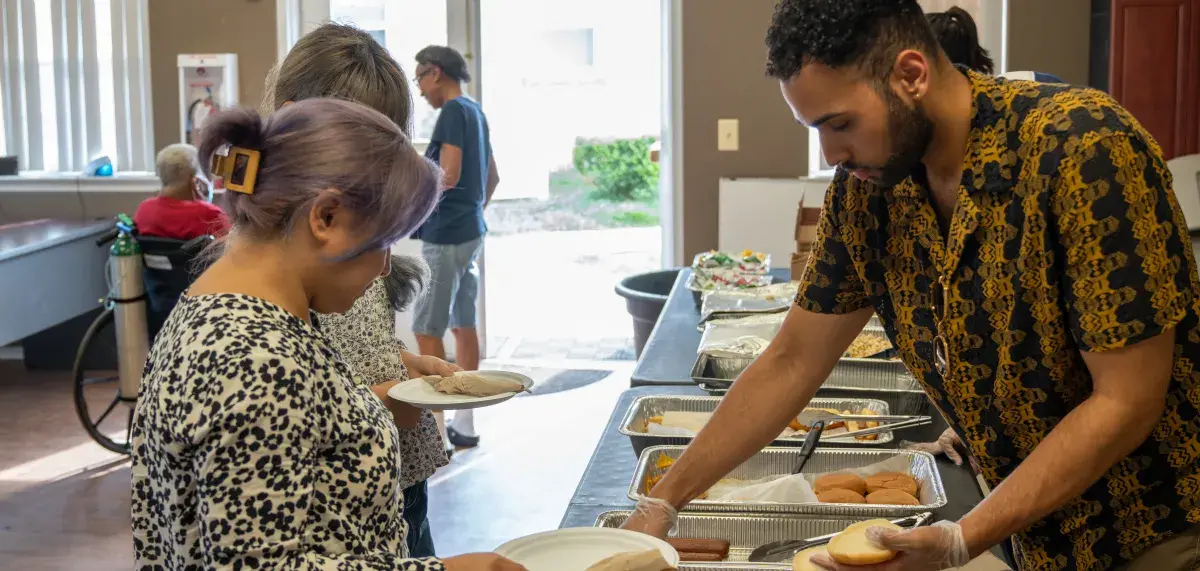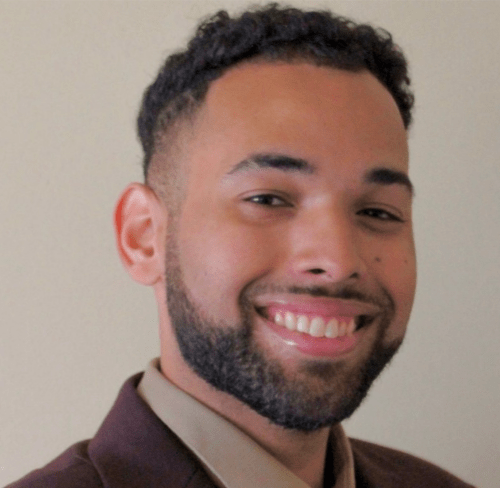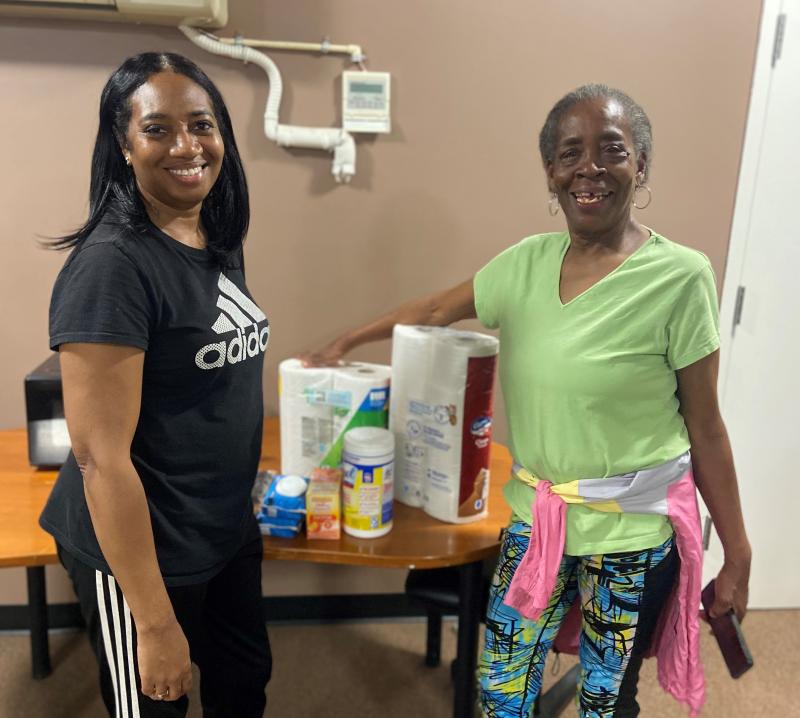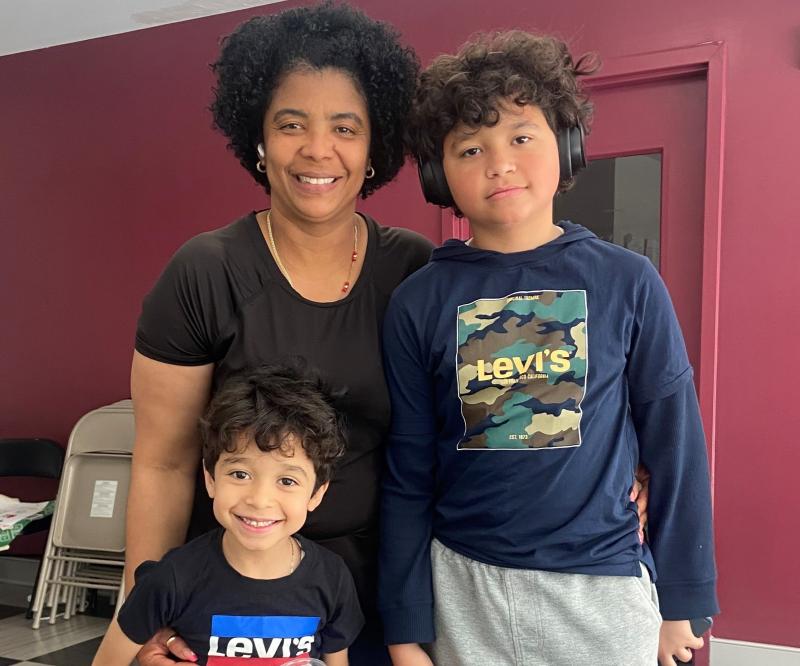Year End Season of Giving
Support affordable housing as we close out 2025.

National Night Out 2024 at Hazel Hill Apartments
As someone who grew up in an affordable housing community, I understand firsthand both the challenges these neighborhoods face and the vital role they play in providing stability for low-income families. Like for many families, the economic conditions in my home, Puerto Rico, compelled my mother to look for better opportunities on the mainland. Finding a new place to call home was an exercise in perseverance and self-determination. In less than three years we moved four times before finding a community we wished to call home. I was five years old when we settled in Sanford, Florida.

In Sanford, we finally found some respite in an affordable housing community where my mother still lives and is the tenant with the second longest tenure. In truth, our new home was far from ideal. Many of my neighbors struggled with substance abuse and violence was a daily occurrence, but it was the only home that a single mother who couldn’t speak English could afford. My story isn’t unique. Ultimately, these experiences shaped my personal and professional journey to becoming a Resident Service Coordinator (RSC). My family and others were often placed in situations where difficult choices had to be made in order to survive and pay rent. Although affordable housing is a lifeline, it’s often an uncomfortable one when there aren’t sufficient support systems in place to support families in need.
I never thought I would be in a position to help communities in such an impactful manner, but fate brought me to National Housing Trust (NHT). NHT’s commitment to anti-racist work while preserving and developing affordable housing spoke to me on a personal level that very few organizations ever have. In my personal life, I was steadfast in my opinion that there was no way to be an ethical landlord. Since joining NHT, that opinion has changed in a way I hadn’t expected. As an RSC, I have the opportunity to give back to communities that remind me of the one where I was raised and attempt to heal wounds created by an unfair and unjust world. Many do not realize that despite the socio-economic and cultural barriers that exist in low-income neighborhoods, these communities provide individuals like me with the stability to end the generational cycle of poverty.

At NHT, RSCs act not only as advocates but also as conduits to resources, keeping us accountable to our residents. As an RSC, I see the real impact of decisions made behind a desk. Every day I help repair fractured communities, deliver valuable services, and build community cohesion. I serve as a liaison, advocate, and resource connector for resident needs. NHT’s Managing Director of Community Outreach and Impact, Raisa Johnson, frequently says, “RSCs do a lot more than just provide services, they are caretakers for our communities.”
I can only imagine how different my and my family’s lives would have been if I had grown up in a community that had an RSC. As I set up weekly food pantries for the communities I serve today, I think back to the times when we would shop at five different stores on the same day just so we could find the best deals on basic necessities. Maybe if my mother would have had access to such a pantry, she would not have had to decide between feeding her children or being able to afford holiday presents. I think about how an RSC could have talked her out of participating in experimental drug trials for $25 because even $25 goes a long way when you are living in poverty.
The impacts of poverty are the same across communities and state lines. When I speak with members of my new community in D.C., I see the same attitudes reflected as those among my neighbors in Florida. I see mothers who struggle to provide a better life for their children while navigating the socioeconomic conditions that force many of their children to leave school to support their families. I hear young children lament their future and hesitate to dream about a life different from their parents because they have never seen someone who looks like them work a non-physically laborious job. My first week at NHT, I had a resident express that she hopes her son stays in school and finds a job like I did. These words struck an emotional chord and reconfirmed that I am where I’m meant to be. I shared with her that my mother had made similar statements and that they are the reason I continued to pursue my own path.

My lived experience growing up in an affordable housing community might not have been the best, but it gave me the ability to empathize and connect with others living in similar circumstances. When a resident spends an hour telling me about her son who was taken from her far too soon, I allow her the space to grieve in whatever way she needs to because I know no one gave my grandmother that opportunity. No matter the socio-cultural issues that thrived in my neighborhood, I knew that I had a community to turn to whenever I needed. As a child, I turned to my neighbors, many of whom fed me whenever my mother was in the hospital. I see the same dynamic in the areas I currently serve, with neighbors celebrating birthdays and mourning losses as a community with shared experiences. I feel honored to be a part of this community as an RSC, and I highly encourage other developers to consider resident services and put residents' needs over profit. For children who grow up in these communities, it could help them become the first person in their family to obtain a college education, escape poverty, and one day mend wounds created by systemic inequalities.
When I reflect on my arduous journey from growing up in an affordable housing community to now serving as an RSC, I’m reminded of how transformative these roles can be. I am forever grateful to not only be a caretaker of my community, but an advocate for communities. I have the privilege of serving a community and uplifting it to create a positive change from within. In every interaction I have with a resident, I nurture a sense of stability, connecting them with vital resources, while creating cohesion.
Low-income neighborhoods are overlooked, dismissed, targeted, and oppressed. Having lived that reality I have firsthand knowledge of the exceptional fortitude that exists in the most under resourced communities. My goal as an RSC is to unlock that potential by being a compassionate guide and pillar of support so that residents may overcome the indelible marks of systemic oppression.
Affordable housing is more than a roof over a family’s head; it’s about giving families that already experience a multitude of systemic barriers a reliable foundation to dream, grow, and disrupt generational cycles of poverty. I am living that experience, and I am aiding in other people’s journeys to the same. Empowering other people to take charge of their lives and tell their own stories is one of the greatest opportunities I might have throughout my career, and it brings me hope for the future. When people are given the opportunity to empower one another, remarkable change and innovation happen. As an RSC it is a privilege to be a caretaker for the community and foster that change.